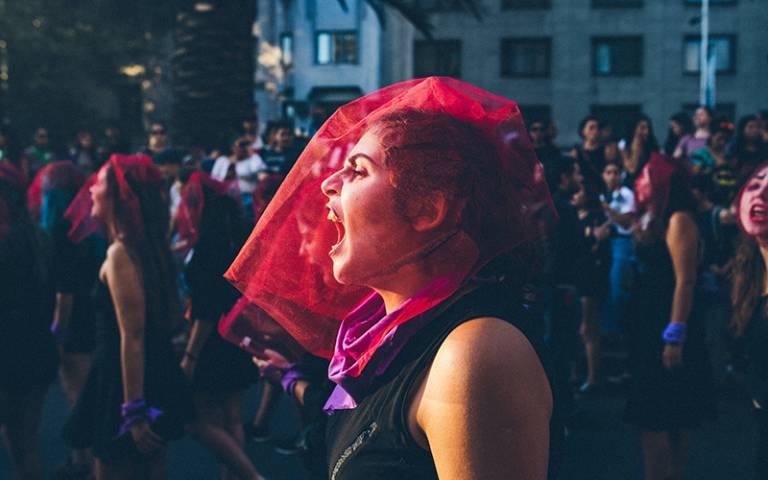DPU PhD student successfully defends thesis on citizenship with a gender perspective
21 October 2022
Congratulations to Blanca Larrain who has successfully defended her thesis on how the political practices of contemporary feminist movements in Chile are re-configuring citizenship.

Her research investigates the political practices of the current feminist movements in Chile and their ability to challenge the dominant notions of citizenship with a gender perspective. Her central argument is that feminist practices account for a transformation of the role and position of women as subjects of rights, the state’s role and responsibility and, therefore, the principles that guide the social contract. By doing this, feminist practices account for a redefinition of the dominant notions of citizenship, pointing out historical gender-blind and limited approaches to the political.
Her research orients its analysis to three specific practices of the current Chilean feminist movements. The first practice is related to the processes of negotiation between feminist movements and the state, where movements trigger a consciousness process, bringing the question regarding women’s role in formal politics into the public debate. The analysis critically reflects on the movement’s insider strategy, exploring this practice’s ability to address women’s political representation and influence citizenship with a feminist perspective.
The second practice is related to artistic performance, where feminist movements challenge the state, re-signifying the social approach to gender violence and the role of public institutions in it. The analysis explores the symbolic transformation of the performance, pointing out the advances and possible limitations of this practice’s ability to reshape citizenship and project a transformation over time.
The third practice is about funas (online public shaming), in which feminist movements use social networks as a space to share personal experiences of violence and publicly shame their perpetrators, denouncing the state’s failure. The analysis offers a critical reflection on funa, questioning this practice’s ability to challenge the dominant notions of citizenship with a feminist perspective.
Through analysing the existing institutional notions of citizenship in Chile and exploring these three feminist practices, her research contributes to the reflection on feminist movements in Latin America through a critical exploration of citizenship, as a dynamic construct, and the expansion of politics with a feminist perspective.
Photo credit Perez 2020
 Close
Close

